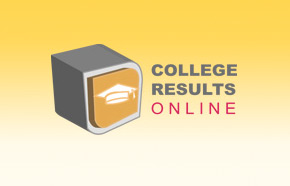Harvard Dean talks about SAT, grants & economy
5 questions for Harvard's admissions dean
By Tracy Jan, Globe Staff | February 24, 2009
Five questions for William R. Fitzsimmons, Harvard University's dean of admissions and financial aid.
Q: You recently lead a high-profile commission that recommended de-emphasizing the SAT and ACT from admission requirements. A number of colleges have already made the tests optional. Do you see this ever happening at Harvard?
A: We do not foresee a time that Harvard would be test optional. Only a few years ago we were receiving applications from about 5,000 high schools each year and now the number has grown to over 8,000. We need some common yardsticks that enable us to gauge in a rough way what is being learned in an ever-increasing and diverse high school context, not to mention the increasing number of students who are home-schooled.
We continue to believe that the College Board's Subject Tests, along with either the SAT or ACT with the writing tests, allow students the best opportunity to demonstrate what they have learned thus far. Advanced placement and international baccalaureate results are also helpful.
J.D.'s comment: there are over 750 colleges that do not require standardized testing, while some schools exempt students who meet grade-point average or class rank criteria.
Q: Starting in March, students who take the SAT have the option of only reporting their best scores to colleges. The "Score Choice'' policy, which you support, is controversial. What is your response to high school students and counselors who say it helps the wealthiest students, who can afford to take the SAT multiple times?
A.: Score Choice rests on the same principle that has supported our admissions process for decades: that applicants should be free to present their own best case. We have always counted an applicant's highest test scores and have allowed students to decide whether they wanted to send all their test scores. That same belief to choose how best to make the case for admission underlies our long-standing invitation to submit essays, CDs, academic or creative projects or anything else that best represents academic, extracurricular, and personal accomplishments.
We seek to bring to Harvard students with the maturity and independent mindedness to exercise choice responsibly. The fact that test results will not automatically be part of the permanent record may also help to alleviate some of the stress that pervades the college admissions process and distorts the junior and senior years of high school.
Standardized tests are only one factor among many in Harvard's holistic admissions process. The Committee on Admissions has always taken into account the fact that test scores can be affected by such factors as schooling, intensive test preparation and socioeconomic background. We have long been aware that the test-taking experience of students may be affected by their financial and educational resources. In particular, we recognize that students from modest economic backgrounds have a limited number of fee waivers for tests and may not be able to take them as many times as affluent students.
J.D.'s comment: having money or not is not a good excuse for poor grades or test scores. Free resources are available to help any student. Check with a local library for SAT prep books, online resources like number2.com or collegeboard.com have an ACT or SAT question of the day.
Q: You recently recruited students in China, saying there is no limit on the number of international students Harvard may accept. What would you say to a student from a small town in Massachusetts who's afraid of being supplanted?
A: First and foremost, Harvard will always be a Massachusetts and New England institution. We work extremely hard on our recruiting and outreach in Massachusetts and New England because we feel it is vital for Harvard to play an important role in educating the future leaders from the place that has done so much to shape its mission. We have always had a policy of admitting a Boston or Cambridge student over others when the credentials are approximately equal.
In the same way, we pay special attention to students from Massachusetts and the rest of New England. Students from our home area benefit enormously by living with and learning from classmates who come from all parts of the United States and abroad. We will continue to seek the best students from around the nation and throughout the world.
J.D.'s comment: no comment
Q: Do you think Harvard's recent financial-aid initiative succeeded in making the incoming classes more economically diverse?
A: Our recent financial aid enhancements have had a dramatic effect on the economic diversity with the incoming classes. Under our new financial aid initiative, families with incomes of $60,000 or less are not required to contribute to the cost of a Harvard education -- while those with annual family incomes of $60,000 to $180,000 incomes are
asked to contribute 0-10 percent of their incomes. Students are not required to take out loans and we do not take home equity into account in calculating financial aid.
There has been an increase of approximately 30 percent in the number of students from families of incomes of $80,000 a year and below. In addition, approximately 60 percent of the incoming freshman class this year is receiving need-based grant/aid, compared to less than 50 percent only a few years ago.
J.D.'s comment: Interesting move. Other colleges are following in suit and reevaluating their financial aid packages and system.
Q: What would you like Harvard's student body to look like in 10 years?
A: In the next decade and beyond we will continue to reach out to students from near and far to attract those who bring academic, extracurricular and personal excellence to Cambridge. We anticipate that financial aid will become even more important in the years ahead and that more students from low- and middle-income families will need< financial assistance to be able to attend college.





